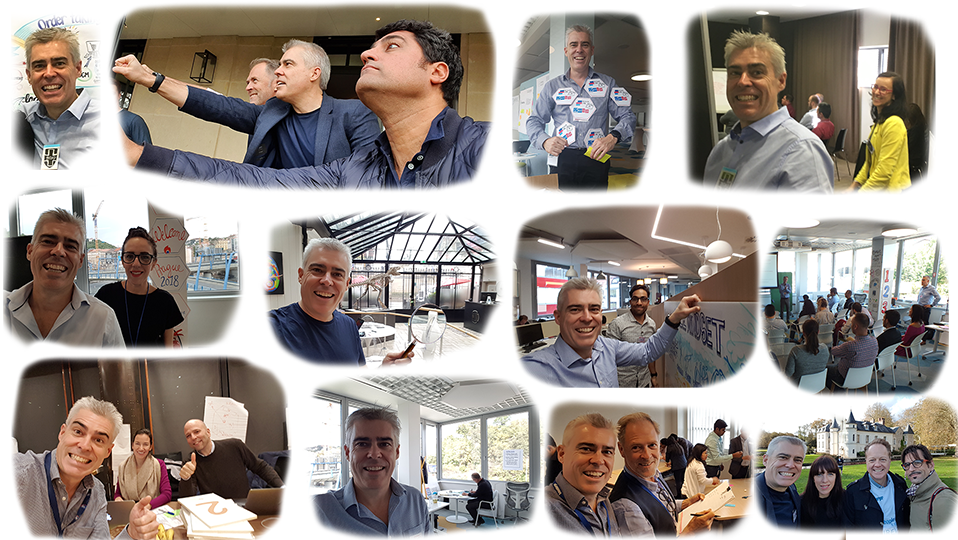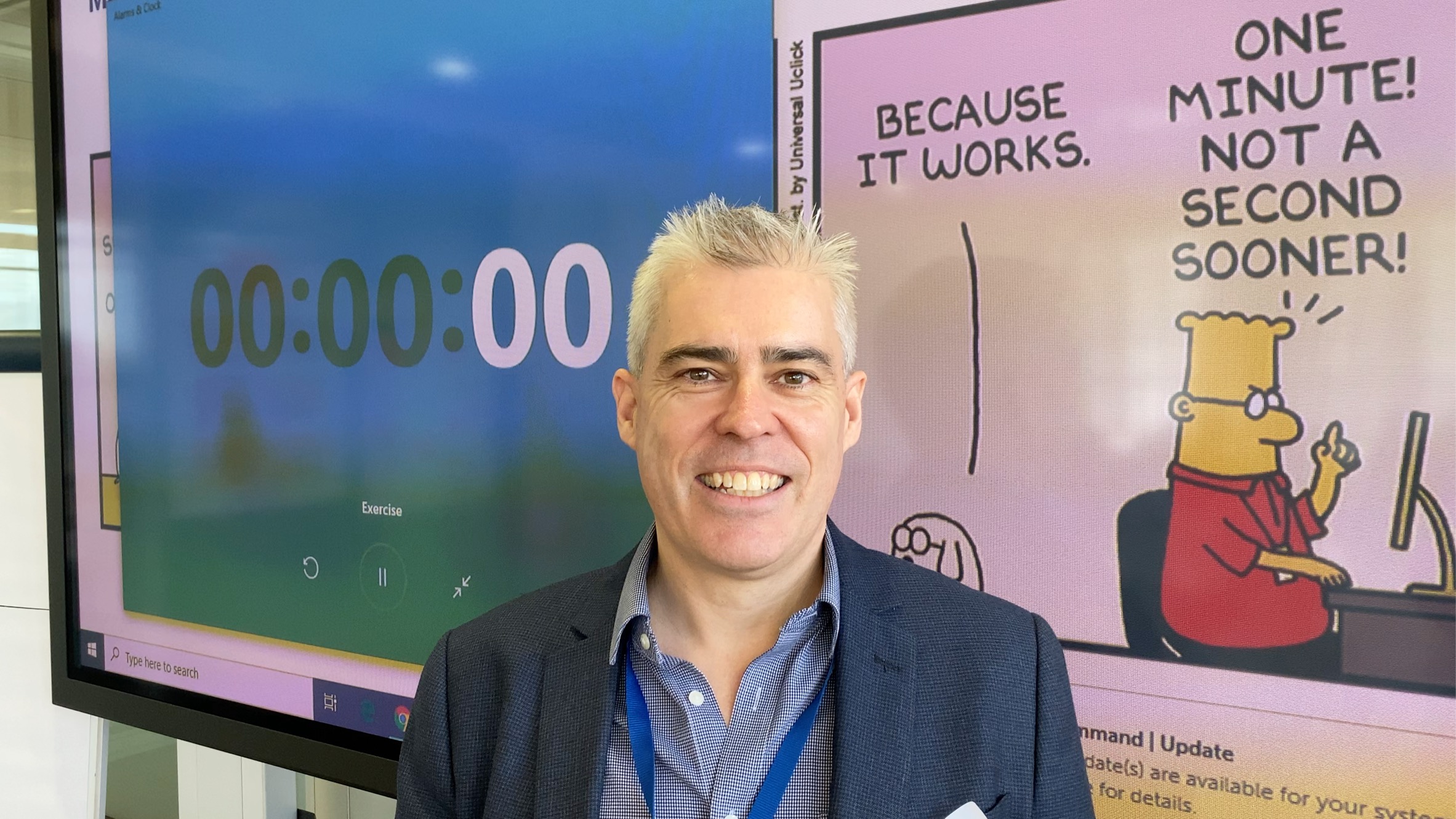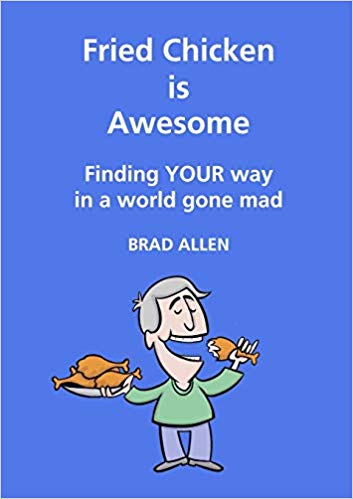Brad Allen is a man with perspective. After about 20 years in the corporate world, he’s now a one-on-one coach, a workshop facilitator, and a father of five. That means he’s seen it all: what goes on in a group setting, more personal moments behind the scenes, and everything in between. Also, somewhere along the way, he made time to author a book—Fried Chicken is Awesome: Finding YOUR Way in a World Gone Mad. So needless to say that Brad is one dedicated, driven guy—an enthusiasm he brings into the workshop as well as the coaching space.
Brad grew up in Australia and finished his undergrad at Perth. His background is in computer science—facilitated by a flair for technology. After starting his professional life working in Australia’s mining, Brad headed north of the equator, to Ireland, where he completed his master’s degree in Dublin. With a degree and professional experience under his belt, Brad did project consulting for about five years. By then, he felt he was starting to hit the ceiling in professional development; it began to feel like moving from role to role in the food chain. In 2014, the timing was right to go back on his own to be a full-time one-on-one performance coach. It seemed the right way to leverage his personal and professional skills to help others and learn along the way.
Enter Starfish Taylor. Brad found them. After leaving the corporate world and going from leadership coaching and one-on-one mentoring, Brad was enthused by the work Starfish Taylor was doing: he was struck by the impact offered by working with larger groups, especially the potential for doing more good with the same amount of time. His first project with Starfish Taylor was in June 2016, at a strategy-building workshop in London, where he got to learn the ropes.
And what a set of ropes he found! From the very beginning of Brad’s experience with Starfish Taylor, he was in awe of the methods Starfish Taylor used to handle standard topics—the kind everyone was dealing with—but that Starfish Taylor was approaching in a deeply innovative way. For starters, Starfish Taylor was going against the grain of everything going digital. In the Starfish Taylor workshops, they were still using pens, markers, sticky notes, boards, stuff contrary to everything Brad had ever seen. Remember, Brad is a tech guy, so this tectile emphasis was a big “ah ha!”
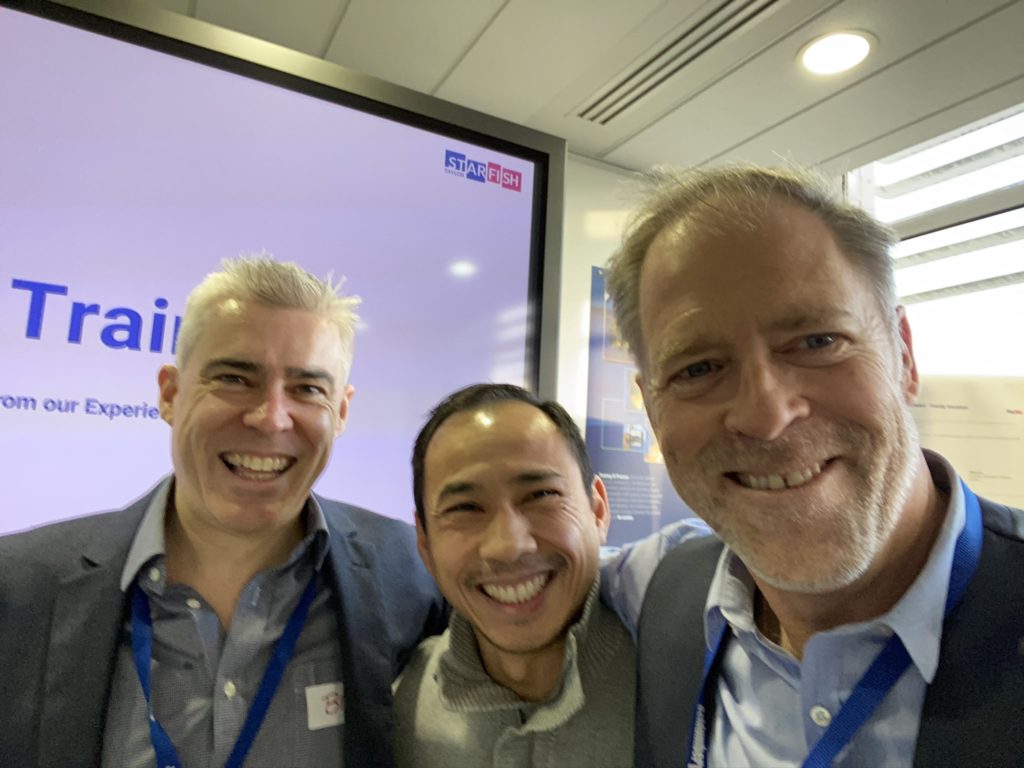
After his first event in London, Brad was completely taken by Starfish Tyalor’s ways. It was, as Brad described it, as if everyone else facilitating workshops were Go-Karting, but Starfish Taylor was operating in Formula One. Go-Karting and Formula One have the same idea: move a little car around a track. And yet they are so different. The speed, driver role, and the importance of the team in Formula One was akin to the way Starfish Taylor facilitated workshops. Everything was fast and fluid. Everything had a purpose. Each person on the team knew each other’s hand-off points. For Brad, that was real facilitation.
As a facilitator for Starfish Taylor, Brad took care of the knowledge work. Two things are important here: Starfish Taylor is very hands-on and they use lean teams. Like the Formula One analogy, everyone had a part to keep the car circulating the track. This means accounting for everything from room environment to inputs and outputs. Brad did it all. He handled everything from the logistics of making sure the participants had what they needed in terms of markers and sticky notes, but he was also capturing moments, like photography, helping to assemble media packages, and other post-workshop outputs for the Starfish Taylor customers. Brad was a man of many hats, and he wore them all well.
Speaking of many hats, Brad’s other professional role as a one-on-one professional coach hugely influenced his thriving new environment with Starfish Taylor. The methods of puzzle psychology in the coaching world mimicked the workshop method origins he saw in play with Starfish Taylor. For Brad, this was apparent in the workshop design. The way Starfish Taylor set up and ran workshops, like Brad’s coaching, was to create space and ask the right priming questions to allow people to explore themselves and come to their own conclusions about what ought to be done.
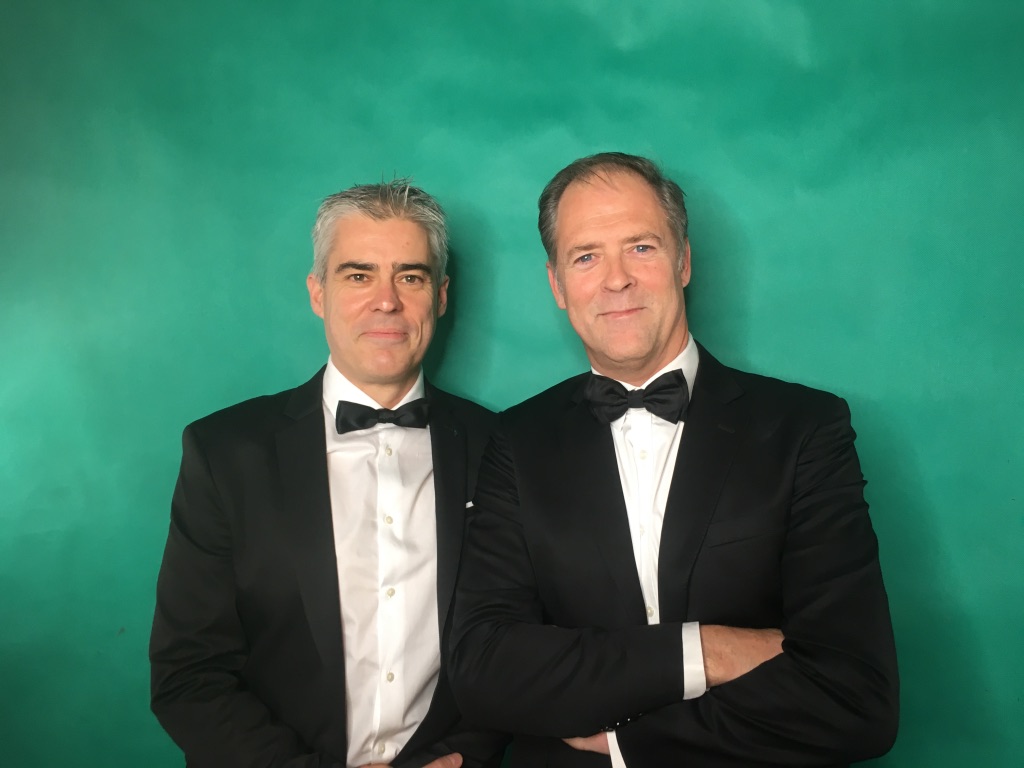
Still, there were differences in coaching versus workshop-ing. These differences primarily came down to the sense of direction and intuition. In a one-on-one coaching session, Brad could immediately see where the person was going through verbal and non-verbal signals. In a group setting, that didn’t happen. The group is full, and there are a lot of people the facilitators can’t talk to or see directly. Even Brad can’t be in every place at once! Instead, as a workshop facilitator, Brad had to anticipate where the workshop would flow and learn to pre-empt moments to adjust accordingly. In Brad’s perspective, part of the magic of Starfish Taylor’s workshops is that the facilitator must be a designer, someone who can see the shift in energy or focus and have the agility to respond. And there is definitely a certain Spidey sense necessary to detect where things are going.
But Brad sees similarities in the coaching versus workshop worlds as well. They share some of the same ups and downs. The biggest challenge of both is ego. Let’s go back to the Formula One example. It’s easy to step back from a race and think to yourself, “They’re moving so fast. It looks so fluid. I could do that. Easy.” But the difficulty is precisely in making it appear effortless. The same misconception of ease can apply to workshops and coaching. But Brad has remedied this with a hefty dose of humility, compassion, and respect for those he’s working with. Experience helps, too.
The biggest positive is also the same: the “Ahhhhh!” moment when a lightbulb of realization goes off. It’s a bit different in one-on-one coaching versus a room. The individual level affords an up-close look at the moment of realization. Workshops don’t have the same intimate feel, but Brad says you can feel the energy in the room change, or individual participants get to their own “ah ha!” moments along the way. But this introduces another of Brad’s favorite aspects to facilitation—working as a team. A group of facilitators as collectively see the whole room light up with the feeling of “we get it, we did it!” To Brad, there is a lot of value in the shared experience of looking across the room, seeing your teammate, and knowing you both witnessed an important moment.
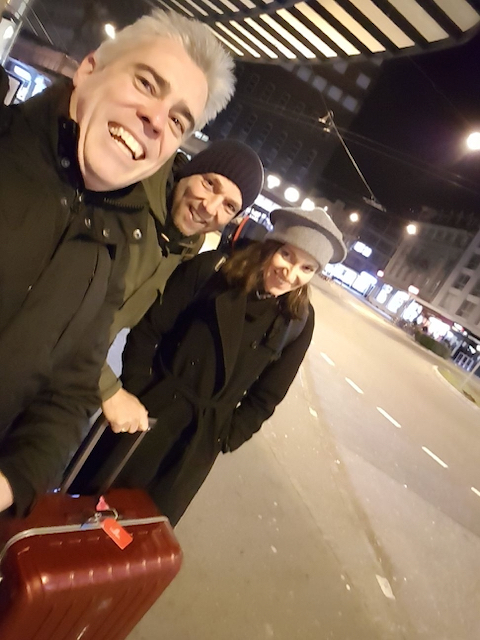
Because Brad wears so many hats—chiefly his workshop facilitator and coaching hats—he can learn and borrow from the two. He also has an old corporate hat that he occasionally takes out and dusts off for more perspective with a client or workshop. And this cabinet of knowledge gives Brad subtly. How does “subtly” manifest? Well, it’s knowing how to use experience and knowledge to pick the next question. The experience of the coach or facilitator matters enormously because it allows a better quality of question. A good facilitator like Brad well understands the problems participants are facing and sense when someone or a group of people need to go a bit deeper and push. And in the workshop, Brad has seen examples of the personal struggles that occur behind the scenes. Perspective is worth a lot, and it is something Brad has in spades. He is privy to the public discussion at workshops and the internal struggle in one-on-one coaching.
Brad is also a non-verbal cue guru. He uses attentiveness to non-verbals in judging the tone of coaching or a workshop. There are many different non-verbals in his arsenal: Silence, for one, which creates opportunity. Or using a single word or phrase to acknowledge something and move on. Or physical presence by leaning in, stepping back slightly, or placing oneself in the center of a group. How does one learn verbal cues? While there are techniques to read language, a lot of knowledge comes from learning mistakes. Another source is observation in personal coaching. Brad puts all these tactics and more to use in coaching and workshop facilitation. In the workshop, that might mean a sense of reading the room, and noting interactions. Time boxing is another important element of workshop facilitation where subtly meets non-verbal cues—ensuring the space to be creative remains open to a working group while keeping participants moving toward their common goal. All this is done while keeping an eye on the prize: What are we here to achieve, and are we achieving that? Are we on track to design to get these objectives? If the answer is “yes”, then Brad feels he and the Starfish Taylor team are doing their jobs.
There’s so much overlap in Brad’s different roles, and it is clear he learns from each role and applies his knowledge to the other. But if Brad had to pick one, coaching or workshop facilitation, which would win out? Neither! There is so much to be gained from each, and so much cross-fertilization, that if it came to a push point, Brad said he’d find a way to ensure his commitment to both. That’s dedication!
Brad really brings it all—experience in the corporate world, time coaching and reflecting with individuals, workshop facilitation, as well as a breadth of his own experiences like non-verbal communication and the deep-dives of authorship—to make him a wonderfully well-rounded contribution to the Starfish Taylor team. Brad is deeply empathetic and understanding of the long strides necessary to pacing out and reaching a goal, and the way to keep the person moving along the way. Thank you, Brad!
Fried Chicken is Awesome – Finding YOUR way in a world gone mad
The burden of past and future choices. Without a crystal ball to see the future, and without the right skills, relief from the burden of choice comes down to one shocking reality. It means giving up the ability to choose. Giving up choice, or more importantly, not taking responsibility for the outcomes, frees you of the burden of choice.
